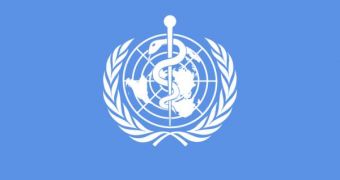The swine flu pandemic, which has recently taken the world by surprise with more than 130 people dying in Mexico and the United States, can no longer be contained, a top United Nations World Health Organization announced a few days ago. This means that nations are now forced to fend for themselves, and should focus on mitigating the effects of the virus, WHO Assistant Director General Keiji Fukuda said. The international organization has raised its alert levels from 3 to 4, on a scale graded to 6, just two steps lower from declaring a full global pandemic, which means that the situation is, indeed, very serious.
According to the UN classification, a level 4 threat alert means that the virus that has received the classification is able to pass indiscriminately from human to human, as well as through defenses mounted against it. It also means that it can penetrate entire communities and wreak havoc among their inhabitants with relative ease. In a recent UN meeting, which was moved ahead of schedule by a day over pandemic concerns, experts from the WHO deemed the situation to be too risky to delay raising the worldwide alert levels.
“What this can really be interpreted as is a significant step towards pandemic influenza. But also, it is a phase that says we are not there yet. In other words, at this time we think we have taken a step in that direction, but a pandemic is not considered inevitable,” Mr Fukuda stated when he made the announcement. The official added that containing the virus was no longer an option, which means that it must have already traveled across the world by now, aboard airplanes and boats going in different ways. In today's deep interconnections, containing a pathogen without early notifications is close to impossible.
“With the virus being widespread, closing borders or restricting travel really has very little effects in stopping the movement of this virus,” Fukuda told, as quoted by the BBC. He responded to questions coming in from reporters, who wondered if closing national borders could prevent the spread of the viral agent, the H1N1 swine influenza virus.
Mexico is the worst affected state, with more than 152 deaths now attributed to swine flu. However, health officials uphold that the number of confirmed cases is only of 20, but that they do not exclude the possibility of the others dying of H1N1 as well. Health Minister Jose Angel Cordova shared that more than 2,000 people had been admitted into hospitals since the outbreak of the flu strain, but that nearly a half of those citizens had been allowed home since then. Throughout the country, people are panicking, and all those on the streets are seen wearing surgical masks, though experts maintain that does little to protect against such a small organism as the influenza virus.
In the US, cases have been identified in Ohio, Kansas, New York, Texas and California, bringing the number of total cases from 20 to 50. However, in all countries other than Mexico, including the US, Canada, Spain and the UK, all cases have been caught early, treated, and the patients made a full recovery.

 14 DAY TRIAL //
14 DAY TRIAL //